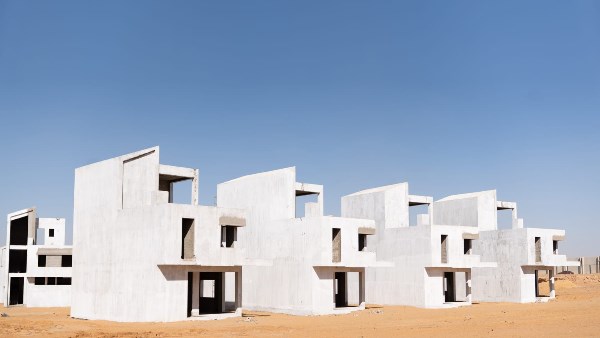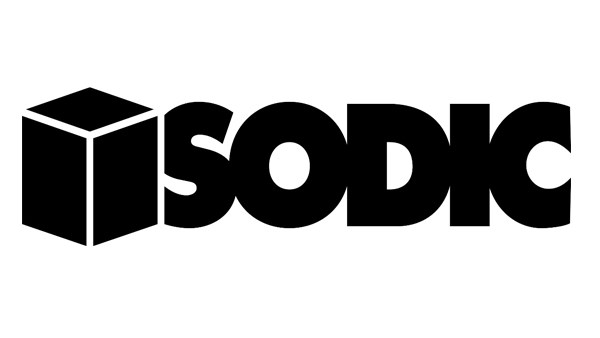
He blasted Xi’s signature Belt and Road Initiative as the “debt and noose,”
Biden Fears China Is ‘Ticking Time Bomb' Posing Danger to World

President Joe Biden blasted China’s economic problems as a “ticking time bomb” and referred to Communist Party leaders as “bad folks،” his latest barb against President Xi Jinping’s government even as his administration seeks to improve overall ties with Beijing.
Growth has slowed
In comments that included several major inaccuracies about the world’s second-largest economy، Biden said at a political fundraiser Thursday that China was in “trouble” because its growth has slowed and it had the “highest unemployment rate going.” He also blasted Xi’s signature Belt and Road Initiative as the “debt and noose،” because of the high levels of lending to developing economies associated with the global investment program.
“China was growing at 8% a year to maintain growth، now close to 2% a year،” he told donors in Park City، Utah، misstating China’s rate of expansion. “It’s in a position where the number of people who are of retirement age is larger than the number of people of working age،” he added، a statement that was not only incorrect but also off by hundreds of millions of people.
“So they got some problems،” he added. “That’s not good because when bad folks have problems، they do bad things.”
Josef Gregory Mahoney، a politics and international relations professor at Shanghai’s East China Normal University، said Beijing was unlikely to be “baited” into responding to Biden’s latest barbs.
Beijing heard a lot worse from Trump
“Beijing knows Biden will resort increasingly to anti-China dog whistle tactics to rally popular support at home،” Mahoney said. “But it’s also important to remember that Beijing heard a lot worse from Trump.”
China’s Foreign Ministry did not respond to a request for comment.
Biden’s comments are some of his most direct criticisms yet about the US’s top geopolitical and economic rival. The president has sought to walk a fine line between using trade curbs to deter China’s high-tech military advancement، while achieving a diplomatic rapprochement with Chinese leaders that could pave the way for a potential meeting this year with Xi، who is expected to visit the US in November to attend the APEC summit.
It’s unclear yet whether that will materialize، particularly after reports the White House will bar sanctioned Hong Kong leader John Lee from the meeting of 21 Asia-Pacific economies. While Biden said on Thursday that Washington isn’t looking for a fight with Beijing، a range of issues threaten to derail the relationship yet again، from new investment curbs approved by the US this week to military tensions over Taiwan، which will send Vice President Lai Ching-te — the leading presidential candidate in a January election — to stop in New York and San Francisco in the coming days.
Efforts to ease tensions
It’s not the first time Biden has made off-the-cuff remarks that threaten to undercut the work of his administration to stabilize ties. In June، just a day after US Secretary of State Antony Blinken completed a trip to Beijing to ease tensions، Biden likened Xi to a “dictator” and questioned the Chinese leader’s control over his country and its military.
It’s unclear how Beijing will react to Biden’s latest remarks. China largely shrugged off his reference to Xi as a dictator، welcoming US Treasury Secretary Janet Yellen and US climate envoy John Kerry on separate trips weeks later. Commerce Secretary Gina Raimondo، who is slated to visit China this month، on Thursday touted an agreement by China to lift restrictions on group travel to the US as a win for engagement between the world’s two biggest economies.
“Biden is right that China has serious problems، but he’s wrong - and inflammatory - on the magnitude of those problems. Ahead of the 2024 election، brace for more incendiary language، as US politicians buy voter support at home at the price of additional risk in relations with Beijing،” said Tom Orlik، chief economist for Bloomberg Economics.
Still، Biden’s swipes at China’s $18 trillion economy come at a particularly sensitive time for Xi.
Key statistics about China
Although Biden misrepresented key statistics about China، the overall outlook remains grim. China’s gross domestic product grew at a slower-than-expected pace of 5.5% in the first half of the year، compared with a year earlier، leading to worries about ripple effects for the global economy.
China slid into deflation in July، and is battling slowing exports، high youth unemployment and a slumping property market highlighted by a debt crisis for Country Garden Holdings Co. Once the country’s largest private-sector developer by sales، the company is in danger of defaulting amid an industry cash crunch.
Xi’s government has sought to silence negative economic news، with officials warning mainland economists to avoid the word “deflation” when referring to price pressures. Discussions of sensitive topics such as private sector reform have been scrubbed from social media platforms، and authorities this week told internet firms to deal quickly with defamatory comments targeting companies online.
At the same time، Biden’s remarks contained factual inaccuracies and overstated some of China’s problems. While China’s population shrunk for the first time in six decades last year، the Asian giant still had 876 million people of working age versus 280 million people 60 years or older، according to official statistics.
Growth of Chinese economy
China’s economy is on track to grow by 5.2% this year، according to a Bloomberg survey of economists in July، even after weak consumption and a property market slump. By comparison، the US economy is forecast to grow 1.6% this year، according to economists.
Although China’s annual economic growth has slowed significantly from the breakneck pace of above 10% seen in the 2000s، authorities have said they want “high quality” development in a pivot away from an infrastructure and property-reliant growth model that fueled high debt levels. That’s weighed on short-term growth، but may mean more sustainable development.
China’s official urban jobless rate has hovered around 5.2% in recent months، compared with the 6.4% jobless rate recorded in the Euro zone in June. Youth unemployment in China، though، is at a record high of more than 20%.





-1120252475029447.jpg)















